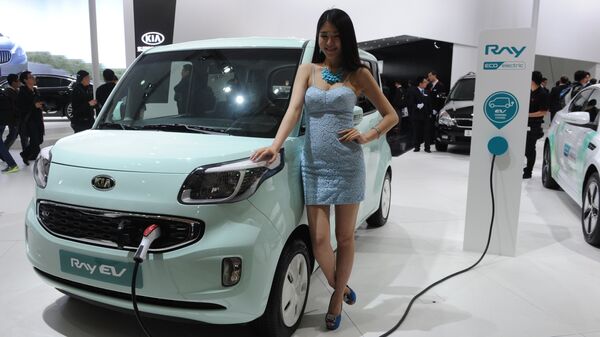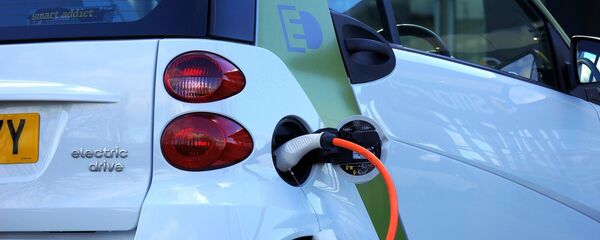The sales index around the country has recently skyrocketed by a staggering 120 percent, which in a way can be explained by the fact that China is likely to gain a monopoly in producing the key resource in e-car manufacturing – lithium, the lightest of all metals. China currently accounts for more than 40 percent of the world’s supply, obviously striving for more. To this end, China’s top car manufacturer, Great Wall Motors, purchased shares of Pilbara Minerals, the Australian lithium producer. Earlier China’s Ganfeng Lithium bought 20 percent of Lithium Americas, Argentina’s biggest lithium supplier.
Having failed to outrun the world’s top car manufactures, namely the USA and Japan, back in the 2000s, China is pinning hopes on the e-car market and stepping up efforts to boost lithium supplies, the key component in e-car battery manufacturing.
In March 2017, the Chinese State Council had outlined strategic goals dubbed "Made in China 2025" so as to give e-car manufacturing top priority at the expense of the conservative ICE market, keeping up with a range of developed countries like the Netherlands, Britain and Norway.
The Chinese e-car market is thriving indeed, showing impressive results, mostly thanks to state subsidies. For instance, hybrid car buyers are offered as much as $4,500 as compensation, whereas new e-car owners are handed around $8,400. The license plates are issued free of charge, whereas one has to participate in an auction to get one for a standard car.
The stimulating measures proved effective; without them, the market is sure to go dead, said Wang Zhimin, the director of the Research Institute of Globalization and China's Modernization.
"If the state subsidies become abolished, demand for e-cars will drop considerably. The thing is, prices for them are still too high. There can hardly be long-term stimulation of the market, nevertheless, the government may initiate research and invest in technologies and labor. The Chinese market is really extensive. As soon as the number of those willing to buy an e-car hits some level, the e-car net cost will go down, thanks to the sales scale. Another issue is the development of the necessary infrastructure, which is currently lagging behind, namely charging stations and battery rental centers."
This goes against comments made in an interview to Sputnik by the head of the Tesla Service Center in Beijing, Guo Yanning: "In Beijing alone there are over 700 battery charging stations, 300-400 more will soon come around. There’s a whole bunch of Tesla centers, nearly in all China’s big cities. We are marching with the times. Local e-car manufactures are in abundance, but their quality is lower than that of imported rivals."
To stimulate not only consumers, but also manufactures alike, the government has introduced a so-called "quota" on e-cars that are expected to roll off both local and foreign assembly lines. By 2020 the e-car segment is projected to account for 12 percent of total car sales. To meet the quota, local companies infrequently have to step up their production by developing poor-quality items, which are sold for peanuts to local authorities, which will not use them, but, nevertheless, happily report to the government on their eco-friendly approach.
So, the prospects for the Chinese e-car market does not look that bright, Sputnik China wrote, citing a high degree of probability that out of the half million items sold last year not all serve their immediate purpose, while a number of them may even not exist. Efforts on the government’s behalf do not suffice; what’s also needed is national integrity, Wang Zhimin pointed out.
"Public propaganda is of paramount importance. The living standards have gone up. To buy an e-car one has to see with their own eyes that it’s cheaper in exploitation and that, for instance, their neighbor owns one."
The expert is sure that the Chinese government has to join efforts with the society to lead the world in terms of e-car integration into everyday life.



